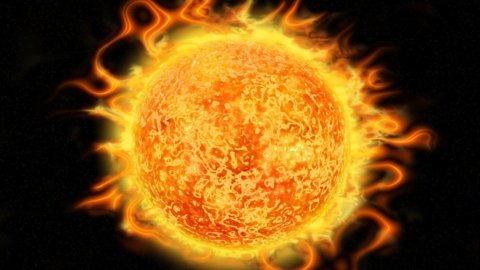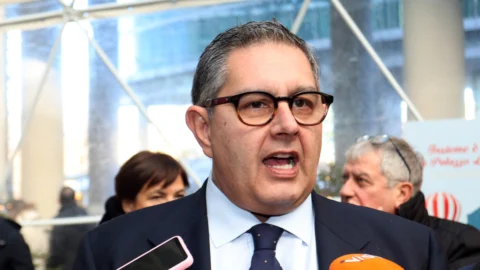In the era of post-truth or, better to say, of big lies, the founding principles of the European Union, EU such as democracy, solidarity and integration cannot be taken for granted.
Indeed, while these ideals are often exploited in an anti-European key, an increasingly widespread use of false or partisan news, disclosed via the web but not only, seems to be the mirror of an increasingly widespread political culture based on emotions and fears rather than facts and policies.
This trend is quite alarming, especially in view of the numerous electoral appointments that the EU will have to face during 2017.
1) A battle between Wilders and Rutte
On March 15, ten days before the 60th anniversary of the signing of the Treaty of Rome, the Dutch will be called to elect a new Parliament. Holland is an economically strong country, which in 2016 alone saw GDP growth of 2,1% with unemployment of 6%. Despite this, it risks becoming the scene of a political confrontation which will see one of the most controversial anti-European parties in Europe, the Freedom party (PVV) led by Geert Wilders, obtain a large number of preferences.
In fact, Wilders' party, with a nationalist, Eurosceptic and xenophobic orientation, has gained increasing support in recent months, and it seems that it may succeed not only in imposing itself on other political forces, but also in winning against its direct rival and former ally , the Popular Party for Freedom and Democracy (VVD) led by the current premier Mark Rutte.
The elections present themselves as a direct challenge between the two leaders, while the CDA (Christian Democratic Appeal), the progressive D66 (Democrats 66) and the probable great loser of these elections appear more distant: the PvdA (Labour Party) .
The PvdA, the most representative left-wing party in the Netherlands, for years the protagonist of the national political scene, this time could face a heavy defeat: some voting forecasts place it at 7%, with 20% less votes than the election of 2012.
2) EU and migrants battle horses of the PVV
Certainly, the success of the PVV electoral campaign is due to the attention paid to the growing disaffection of Dutch citizens towards the EU and to an exaggerated amplification of the migration crisis. Especially the latter issue turns out to be electorally successful. Suffice it to say that during the peak of migratory flows towards the European continent, which occurred mainly during mid-2015, the distance between Wilders and Rutte had increased by a good ten points, with the former clearly ahead of the latter.
Despite the attention paid to this phenomenon, in the last year the migrants who applied for asylum in the country numbered 33 thousand, including Syrians, Eritreans, Afghans and Iraqis. These are paltry figures, if one considers that a country like Sweden, with a population of nine million inhabitants - about half that of Holland - received over one hundred thousand in the same period of time.
By linking the problem of migration with terrorism and Islamic radicalism, Wilders is not only proposing to close reception centers for asylum seekers, but he is conducting a markedly anti-Islam electoral campaign (stop Islam), proposing to de-Islamise society by closing mosques, banning the possession of the Koran – which is compared to Hitler's Mein Kampf – and preventing Muslim women from wearing the veil.
3) Glimmers of hope for pro-Europeans
However, the ultra-nationalist positions on migration and social integration do not go well with the PVV's unconditional support for economic neoliberalism. In this case, the Party hypothesizes the Dutch exit from the monetary union and believes that the EU should limit itself to being a large free market, arguing the need for Holland to regain national sovereignty to the detriment of Brussels and the institutions not only in the sphere of national policies but also of foreign ones. For example, Wilders argues that Amsterdam needs to suspend the sanctions regime in place against Moscow.
However, Dutch pro-Europeans need not despair. In fact, even if the PVV were to prevail over Rutte's VVD, Geert Wilders' party would manage to occupy only 33 of the 150 seats in the Second Chamber, far from the 76 needed to obtain a majority sufficient to govern.
Furthermore, all the running parties have already declared that they are not willing to form any government alliance with the PVV. Conversely, to counter the rise of Wilders, a grand coalition of parties could be formed, with the aim of obtaining a majority in the House.
In the post-Brexit era, the Dutch elections will represent only one of the stages of a challenge that will probably continue throughout 2017. After the Netherlands, the French presidential elections could bring Marine Le Pen, leader of the eurosceptic party Le Front National, to the final ballot, while in October, during the federal elections in Germany, the eurosceptic party Alternative for Germany (AfD) could hover above 10%.
At this juncture, while on 25 March the EU member countries will celebrate the 60th anniversary of the signing of the Treaty of Rome, the spread of anti-European sentiment amplified by the nationalist propaganda of Eurosceptic parties is undermining the value foundations of the Union itself.




